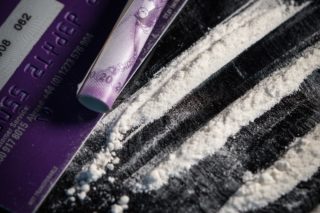Cocaine Withdrawal: What to Expect
If you’ve decided to stop using cocaine after a long period of usage, congratulations. You will ultimately feel much better, but you’ll have to get through the withdrawal process first. One reason the withdrawal process is so difficult is because it feels like a “crash” in comparison to using cocaine. When you use cocaine, you experience a rush of dopamine and norepinephrine in your brain that feels like a genuine sense of euphoria. When you no longer are feeding massive amounts of those neurotransmitters into your brain, you’ll feel the contrast between the euphoric high and the low of not having them.
Cocaine crash happens quickly. The half-life of the drug is about one and a half hours, which means that a normal dose is gone from the body entirely in about seven and a half hours. Therefore, if you decide to quit cocaine, there is no way to taper down your usage—you must simply quit cold turkey, and prepare for the crash that comes with the feeling of no longer being on cocaine.
A crash following cocaine usage can include feelings of irritability, depression, and agitation. People may have increased feelings of sleepiness since they don’t have the stimulant effect of cocaine in their system any longer. Severe cocaine withdrawal may include feelings of paranoia or suspiciousness, and many people have suicidal ideation once they’ve stopped using the drug.
Luckily, there are not too many physical symptoms that come from cocaine withdrawal. Instead, cocaine withdrawal tends to be a very difficult psychological experience—and people say that the depression and cravings they have for the drug during their initial phase of stopping are both extremely physically intense.
Cocaine Withdrawal: a Typical Timeline
Now that you know some of the basics of what you’ll experience during the most intense parts of the cocaine withdrawal experience, it can help to understand when the phases happen and how long they last. If you’ve been wondering: how long does cocaine withdrawal last? Here is a general timeline of the process.
Phase 1
Phase 1 is the toughest phase of cocaine withdrawal. It begins as soon as you stop using cocaine and the effects wear off, and it’s often described as the cocaine crash. During Phase 1, people have strong feelings of depression and anxiety, and they also feel irritable, fatigued, tired, hungrier than normal, and unable to feel pleasure from normal sources of pleasure. Cravings begin during Phase 1 of cocaine withdrawal, and people immediately want to use the drug again to help get rid of the symptoms of the crash.
While physical symptoms from cocaine withdrawal tend to be minimal, they would happen during this phase, and some of the rarest (but serious) are severe dehydration, trembling, a potential for seizures, and even the potential for cardiac arrest. If you have been a serious cocaine user, this is why it is important to start the recovery process with the help of a medical professional.
Phase 2
Once individuals get through Phase 1 of cocaine withdrawal, they enter Phase 2. Phase 2 is a much longer phase than Phase 1, and it can last as long as 10 weeks in some people. During Phase 2, most of the physical symptoms people experience will be completely gone. However, cravings for cocaine will come and go regularly, and people will still feel extremely fatigued and lethargic. People in Phase 2 of cocaine withdrawal may also feel irritable and have problems with attention or focus.
While Phase 2 is long, it is the phase through which symptoms get noticeably easier and more manageable, and it may be the time when people feel like they are beginning to reclaim their lives and health.
Phase 3
The last phase of cocaine withdrawal is Phase 3, sometimes called the extinction phase. During the third phase, which begins after 10 weeks of sobriety, people will still experience cravings for cocaine—especially when they are in environments where they used to take the drug. However, the cravings will be much less intense and much less frequent than in previous phases. During phase 3, people’s moods may be better overall, but they may still struggle with apathy, irritability, lethargy, and just feeling a little bit off. As time passes, this phase continues to improve. Eventually, people sober from cocaine will feel as good as they did before they started using cocaine.
Tips for Getting Through Cocaine Withdrawal
Now you know that what to expect when you’re going through cocaine withdrawal. While it might sound scary or unpleasant, the process is actually one that is relatively low risk physically—and one that will improve relatively rapidly if you are able to withstand the beginning severe stages. Here are some important tips that can help you get through the cocaine withdrawal process, so you can be done with the drug once and for all.
Seek Professional Help
Cocaine is considered one of the most addictive drugs available. While the withdrawal isn’t as physically dangerous as some withdrawal processes can be, it can help to go through withdrawal under the supervision of a professional. Not only can a professional ensure that you’re not in any physical danger as you go through the withdrawal process, but they can also give you tips to help ensure you stay on the path to recovery, and they can let you know what to expect as you go through the withdrawal timeline.
One of the best parts about recovery professionals is that they are well-versed and well-practiced in helping people ride out cocaine cravings. People report that one of the hardest parts of getting sober from cocaine is dealing with the intense cravings, and letting them pass without giving in to them. Professionals can guide you through waiting out a craving and give you tips for distracting yourself or being mindful about feelings that come and go.
Stay Away from Places and People You Associate with Cocaine
Often, regular cocaine users have triggers that make them crave the drug. Triggers often include people and places they associate with regularly using the drug. To help you avoid strong, powerful cravings, it’s important to avoid places and people that remind you of cocaine. This includes friends you did cocaine with, bars or clubs where you partook in the drug, and events where cocaine was regularly present. Set yourself up for sobriety success by setting up new routines that you’ve never associated with cocaine—it will help reduce cravings and create new patterns to fill up both your days and nights.
Speak to a Mental Healthcare Provider
One of the hardest parts of quitting cocaine is the crash you feel when you stop. One of the most severe aspects of the crash is usually the depression you feel after the drug is no longer in your system. Depression can be debilitating and interfere with everyday life functioning, and it can also lead to more serious conditions like suicidality. If you seek a mental healthcare provider, a psychiatrist may be able to prescribe a medication that can help improve the depression you’re experiencing. SSRIs and SNRIs are two classes of drugs that alleviate depression over time and may help to improve your mood or the sadness you experience post-crash.
Seek Out Peer Support
Going through cocaine withdrawal can feel like a very isolating experience. Also, feeling like you’re alone on a hard journey may make that journey seem even more impossible. To help improve your process of getting clean and remaining clean, consider seeking out peers who can support you through the entire recovery journey. There are organized, official support groups for people getting clean from drugs, like Narcotics Anonymous (NA), where people share their stories of hope and offer support to people newly sober. These programs have recovery-related steps that can help you stay on the path to health and wellness.
If you’d rather spend time with friends or loved ones, reach out to those who are close to you and let them know what’s going on. Knowing that someone is there to be with you when you feel hopeless and lonely, or having someone to distract you when you’re battling a craving, may just be the thing that helps you push through the parts of the recovery process that feel impossible.
Find New Hobbies or Ways to Fill Free Time
If you were a regular cocaine user, there is a good chance that the drug took up a good portion of your free time. Having a huge amount of newly free time while sober can be exciting—but it can also feel daunting, and may result in cravings to use cocaine, especially if you are particularly bored or unsure of how to fill your days. Look for new hobbies or interests to help you fill your time. Maybe you want to take a class to develop a new hobby or skill.
Alternatively, you could organize regular group hangouts with sober friends to ensure you’re surrounding yourself with healthy influences and also filling up your time with activities that feel meaningful and supportive. Exercise might be a new good hobby because it can help you improve your physical health and also produce endorphins in your brain, which can help you feel happier and more energized.
As you fill your time with non-drug-related activities, you’ll reduce the chances you give in to a cocaine craving, and you’ll start creating a life that feels more meaningful and fulfilling than ever before. It is easier for many to stay sober when they have a life that makes them feel healthy, engaged, and appreciated.
Get Help With Cocaine Withdrawal From Windward Way Recovery
Cocaine is a drug that many people abuse—but it’s also one that many people have quit using. At Windward Way Recovery, we believe in anyone’s ability to get over their substance use disorder and to go on to live a happy, healthy, and thriving life. At Windward Way Recovery, we can help you get through the cocaine withdrawal process as painlessly and comfortably as possible.
Cocaine withdrawal doesn’t have too many serious physical symptoms, but you can still benefit from being under medical supervision when you go through the process, just in case any issues arise. If you choose to undergo withdrawal at Windward Way Recovery, we will make sure you are supervised, and we will also help to make your experience as comfortable or tolerable as possible.
We will supervise you medically during Phase 1 of withdrawal. Then, once you are past the most acute stage of the withdrawal process, we will move on to working on the psychological struggles that are associated with the withdrawal process, to understand the reasons behind why you were using, and to help you deal with any feelings of depression or suicidality that arise when you no longer put cocaine into your body. At Windward Way Recovery, we are confident we can help you deal with any feelings that arise from being newly sober and guide you in building a new stable, drug-free life.
So, if you have been wondering: how long does cocaine withdrawal last? For you or a loved one, call Windward Way Recovery today. Our team of compassionate experts can let you know a little bit about what to expect from the process of quitting cocaine, as well as how we can help you or your loved ones get on the road to recovery as soon as possible.






